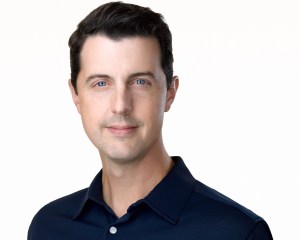Mercury Fund, an early-stage venture firm, closed on $160 million in capital commitments for its fifth fund, also its largest.
In general, it’s been a busy month for venture capital firms announcing new capital commitments. Mercury Fund joins firms, including Mythos Ventures, Connect Ventures, Fuse and Unconventional Ventures, in announcing new funds this month.

Blair Garrou, co-founder and managing director of Mercury Fund. Image Credits: Mercury Fund
Having been around for a decade now, the firm was previously known as DFJ Mercury. In 2013, it took on the Mercury Fund moniker when Draper Fisher Jurvetson restructured its entities. Today, Mercury Fund has helped create more than $9 billion of enterprise value across its portfolio of over 50 companies.
This fifth fund had an initial target of $150 million and is backed by existing investors and new limited partners, including university endowments, foundations and family offices. Many of the new investors are based in the central United States where Mercury invests, Blair Garrou, co-founder and managing director of Mercury Fund, told .
Houston-based Mercury Fund typically raises every three to four years to give time to deploy the capital, Garrou said.
“Some funds in the past have taken longer to raise, but this one actually wasn’t nearly as long,” Garrou added. “That was due to the performance of our previous fund. We closed right before COVID, but we put it to work during COVID. We had some really great companies in that fun cycle, including Cart.com, Otto and Signal Advisors.”
Finding SaaS opportunities
The firm’s model includes investing in founders building transformational SaaS and data platforms in smaller technology markets outside of the coastal tech hubs. There are regions where they don’t have the kinds of startup ecosystems or resources as their counterparts on the coast.
In speaking about where opportunities are for SaaS in those regions, Garrou said over five years ago, there was more focus on business-to-business as it relates to industrial SaaS. For example, the automotive, food and beverage and energy industries.
Today, the emphasis is on vertical SaaS and entrepreneurs taking over the consumer experience. For example, Garrou saw that in Otto and also in RepeatMD, one of its investments from the new fund. RepeatMD is a Houston-based patient engagement and fintech platform for doctors selling non-insurance reimbursed products.
“You’re starting to see these clusters of activity of really successful companies picking up the SaaS playbook and pushing that forward,” Garrou said. “Back in fund three, we were almost entirely B2B. That’s now expanded into B2B, B2C and data platforms for fund five.”
Therefore, Mercury has created an operationally-focused investment model that helps provide those resources so portfolio companies can more rapidly grow.
A ‘middle America’ fund
Mercury Fund was raising for its fifth fund in 2021, while deploying capital from its fourth fund, which Garrou said “was our best performing fund today.” That year, the firm’s portfolio had over 10 exits, he added, which seemed to make the limited partners very happy.
Garrou described the fundraising environment as “pretty robust,” noting that the firm’s model came into maturity during that time. When funding took a downturn in 2022, Garrou went back to Mercury’s LPs to reopen conversations, and not only did the LPs stick with them, but some doubled down on their initial investment.
And, once the recession period began, Mercury, already working with its companies to be capital efficient, was really attractive to institutional investors, Garrou said.
“Being a ‘middle America’ fund, it’s always challenging raising capital counterparts, but our model is just different,” Garrou added. “During COVID is when we saw hybrid work become the norm, and companies could hire talent from anywhere and raise capital from anywhere. That really sat well with our fund being very operationally-focused.”
In addition to RepeatMD, Mercury has made seven investments from the fifth fund so far. Garrou expects to make between 18 and 20 investments overall. Others include Polco, a community engagement polling platform for local and state governments based in Wisconsin, MSPbots, a Chicago-based AI-driven process automation platform for small and mid-sized managed service providers, and Brassica, a financial infrastructure technology company developing enterprise solutions for alternative assets, based in Houston and Cheyenne, Wyoming.
“We expect to do another two to three years of investing throughout this fund,” Garrou said. “Then our hope is that we’ll have another great liquidity period in 2025 like we had in 2021. If so, we’d love to raise again some time after that.”
Have a juicy tip or lead about happenings in the venture world? Send tips to Christine Hall at [email protected] or Signal at 832-862-1051. Anonymity requests will be respected.
